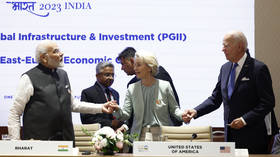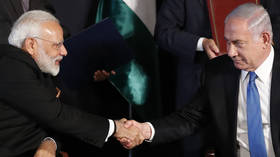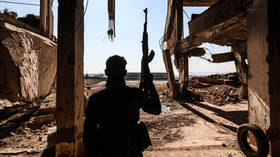A Bridge Too Far? Why Israel-Palestine war is a setback for economic corridor connecting India to Europe

On September 10, India, Saudi Arabia, the United Arab Emirates (UAE), Jordan, Israel and the European Union signed an agreement to develop an economic corridor connecting India with Europe through the Middle East. The deal co-authored by the United States and India was clinched on the sidelines of the G20 Summit in New Delhi.
Not short on ambition, the economic corridor, once up and running, promises to be a force multiplier in a region which - excluding Europe – accounts for the fastest-growing economies in the world, which also have the most fractious geographies.
The corridor’s promise to help resolve historic wrinkles in relations between key countries of the Middle East suffered a rude jolt on October 7 when Hamas, the militant organisation governing Gaza, launched a deadly attack on Israel.
While this casts a shadow over the region as a whole and this project in particular, India is holding up its end of the bargain by announcing the rollout of investments related to the so-called India Middle East Europe Economic Corridor (IMEEC).
Railways Minister Ashwini Vaishnav recently said: “We will step up our investment in improving connectivity to the eight ports so that we can reach these ports within 36 hours from any part of the country, and quickly ship our goods to West Asia and Europe, using the IMEEC.”
The Plan
The IMEEC is a futuristic plan that is overflowing with ambition, particularly in its effort to overcome conventional fault lines in the region. It proposes to connect India to the UAE by sea. From Jebel Ali, where goods sent from India arrive, they will be transported by rail to Haifa, Israel. Thereafter, the goods will be transported by sea to Europe. Strategically the corridor opens up an alternative to the route using the Suez Canal and, by some assessments, could make trade between India and Europe 40% faster.
This idea did not emerge in a vacuum. It was preceded by efforts to create an architecture that will make it more amenable to implementation. The Abraham Accords, a series of US-brokered agreements seeking to normalize several Arab nations’ relationships with Israel, are a key element of making the IMEEC viable.
The Abraham Accords made possible the establishment of the I2U2 grouping of India, Israel, UAE and the United States. The group aims to create a synergy between member countries to jointly address global challenges, especially with respect to fostering investments in water, energy, transportation, space, health, and food security.
Separately, over the last decade India has stepped up efforts to restore its historic relationship with the Middle East, which is home to millions of Indian expatriates. To make up for the diplomatic neglect, Prime Minister Narendra Modi visited the UAE in 2015 – the first trip by an Indian PM in 34 years – and has since become a regular visitor to the region.
This, in turn, paved the way for a new turn in their relationship, culminating in the India-UAE Comprehensive Economic Partnership Agreement. India is exploring similar deals with other countries in the region, including Saudi Arabia.
Shared Prosperity
The IMEEC builds on the new diplomatic buzzword, friendshoring – a trade practice wherein supply chain networks are strung across countries considered to be political and economic allies.
This idea gained currency in the aftermath of the falling-out between China – at one time the factory of the world – and the United States.
Every country figuring in the corridor is an investor, and hence a stakeholder in its success. As the official statement claims, the deal broadly seeks to link commercial hubs across continents, facilitate the development and export of clean energy, expand reliable access to electricity and the Internet, drive existing trade and manufacturing, strengthen food security and supply chains, unlock new investments from partners including in the private sector, and spur the creation of high-quality jobs.
The economic corridor is envisioned as a forerunner to similar agreements in the future. One such project is the “Trans-African Corridor” that European Commission President Ursula von der Leyen announced during her New Delhi visit in September. It is planned that it will connect the port of Lobito in Angola with the Katanga province in the Democratic Republic of Congo and the copper belt in Zambia. The stated goal is “shared prosperity,” the idea of creating resilient supply chains by making everyone a stakeholder.
Before the vision of these new trade routes can move towards becoming reality, however, the IMEEC has to withstand the test of the Hamas-Israel war. Already Saudi Arabia, one of the signatories of the Abraham Accords, has paused the normalization process with Israel, and other Arab nations in the region appear to be apprehensive of dealing with Israel.
US President Joe Biden added to the confusion when he claimed the Hamas attack was aimed at sabotaging the IMEEC. However, a day later White House National Security Council (NSC) spokesperson John Kirby sought to walk back the comments, claiming that the president had been “misunderstood”.
“I think you misunderstood him. What he said was that he believed that the normalization process and the agreement that we were trying to reach between Israel and Saudi Arabia for normalization, which we believe is an important steppingstone to getting to a two-state solution, was what may have motivated Hamas to conduct those attacks,” he said.
While India is confident that the project can succeed despite the odds, it will take some effort to avoid letting the regional situation roll back to square one.
The statements, views and opinions expressed in this column are solely those of the author and do not necessarily represent those of RT.
















